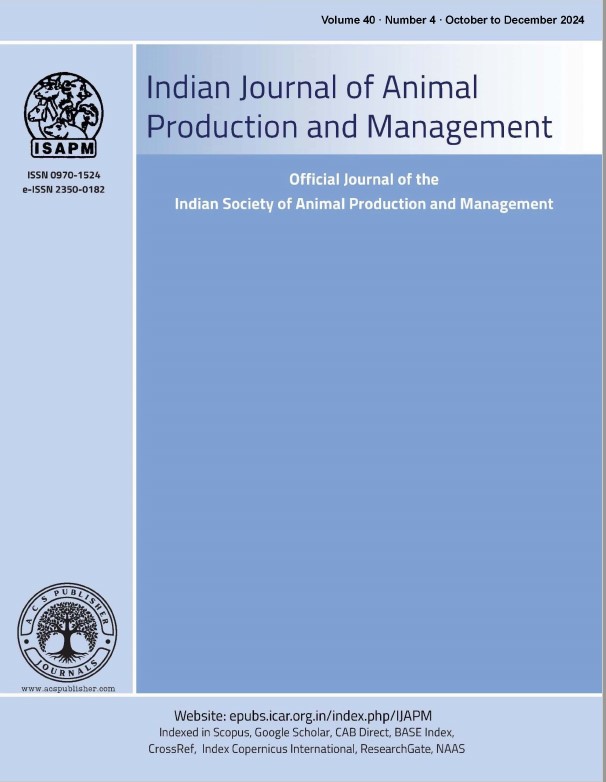EFFECT OF SEX AND NUMBER OF DEVELOPING FOETUS ON PHYSIOLOGICAL RESPONSE IN CROSSBRED DOES
Keywords:
Doe, foetus, rectal temperature, Pulse rate, respiration rate, body weightAbstract
Fifteen, 19-24 months old, farm born primiparous crossbred goats were randomly selected to study the effect of foetal sex and number on physiological responses and body weight changes during last three months of pregnancy. The pulse rate was significantly (P<0.05) higher in pregnant than non-pregnant does by about 47.54% during entire study periods. The respiration rate during study period of 3 months was non-significantly higher by approximately 37% in pregnant than non-pregnant does. The pulse rate was significantly higher (P<0.05) in pregnant does carrying female foetus over those who had male or male and female foetus during gestation. The does having single foetus in their womb had significantly higher (P<0.05) pulse rate than the does bearing twin. The pulse and respiration rate had increasing trend with significant (P<0.05) differences during different months of pregnancy and it was maximum in the last month of gestation irrespective of foetal sex or number. The body weight changes was higher in pregnant than non-pregnant dams. It was concluded that the physiological responses as well as the body weight changes can be used for prediction of pregnancy, sex and number of growing foetus at farmers’ doorstep.

